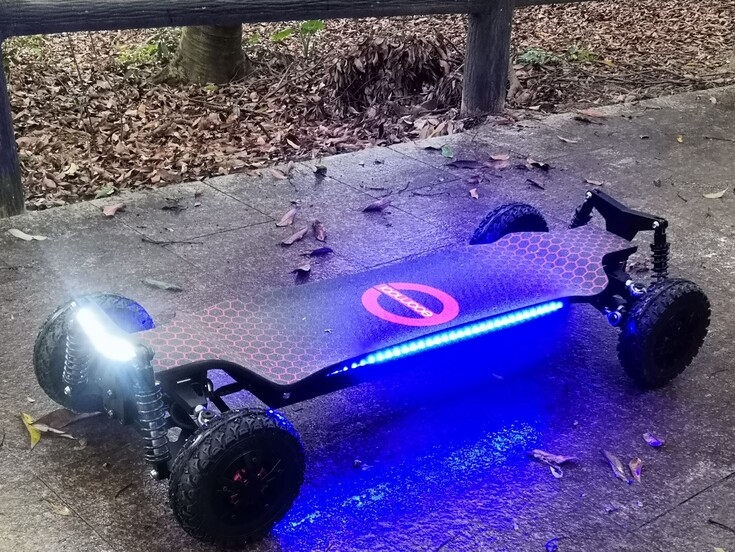Electric skateboards with remote controls are revolutionizing the way we commute and explore our surroundings. These innovative devices combine the thrill of skateboarding with the convenience of electric power, offering a sustainable and efficient mode of transportation. In this article, we will delve into the future of transportation by exploring the exciting world of electric skateboards with remote controls.

The Rise of Electric Skateboards
Electric skateboards have gained significant popularity in recent years, and for good reason. They provide a fun and eco-friendly alternative to traditional modes of transportation. With advancements in battery technology and motor efficiency, electric skateboards are becoming more powerful and reliable than ever before.
One of the key advantages of electric skateboards is their ability to navigate through congested urban areas with ease. Unlike cars or bicycles, electric skateboards can effortlessly weave through traffic, allowing riders to reach their destinations faster. This makes them an ideal choice for short commutes or last-mile transportation.
The Future of Transportation
The future of transportation lies in embracing sustainable and efficient alternatives, and electric skateboards with remote controls are at the forefront of this movement. As cities become more congested and pollution levels rise, it is crucial to adopt eco-friendly modes of transportation that reduce our carbon footprint.
Electric skateboards offer a compelling solution to this problem. By utilizing electric power, they eliminate the need for fossil fuels and reduce air pollution. Additionally, they require minimal infrastructure and take up less space on the road, making them a viable option for urban environments.
Advancements in Technology
The rapid advancements in technology have paved the way for exciting developments in electric skateboards with remote controls. Manufacturers are constantly improving battery life, motor power, and overall performance to enhance the riding experience.
For instance, regenerative braking technology allows electric skateboards to recharge their batteries while braking or going downhill, increasing their range and efficiency. Furthermore, the integration of smart features, such as smartphone connectivity and GPS tracking, enhances the overall user experience and safety.
The Future of Electric Skateboards with Remote Controls
The future of electric skateboards with remote controls holds immense potential. As technology continues to evolve, we can expect to see even more innovative features and improvements in performance.
One area of development is the integration of artificial intelligence (AI) and machine learning algorithms. This could enable electric skateboards to adapt to the rider's preferences and riding style, providing a personalized experience. Additionally, advancements in battery technology may lead to longer ranges and faster charging times, making electric skateboards even more practical for daily use.
Furthermore, the future may bring advancements in safety features, such as collision detection and automatic emergency braking. These technologies would enhance rider safety and further encourage the adoption of electric skateboards as a mainstream mode of transportation.
In conclusion, electric skateboards with remote controls are revolutionizing the future of transportation. Their eco-friendly nature, convenience, and technological advancements make them an appealing choice for commuters and enthusiasts alike. As we continue to embrace sustainable alternatives, electric skateboards will play a significant role in shaping the way we commute and explore our surroundings.








